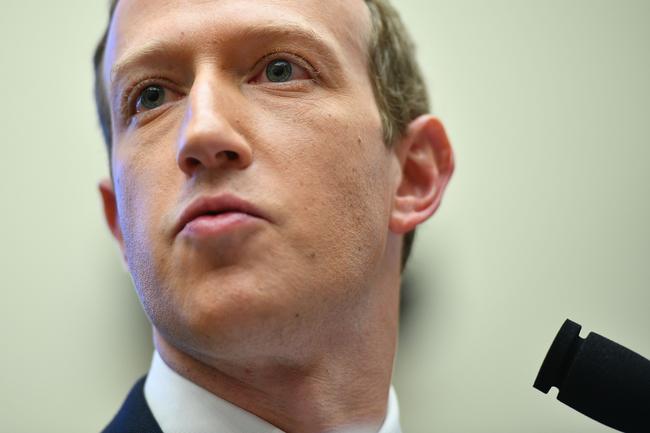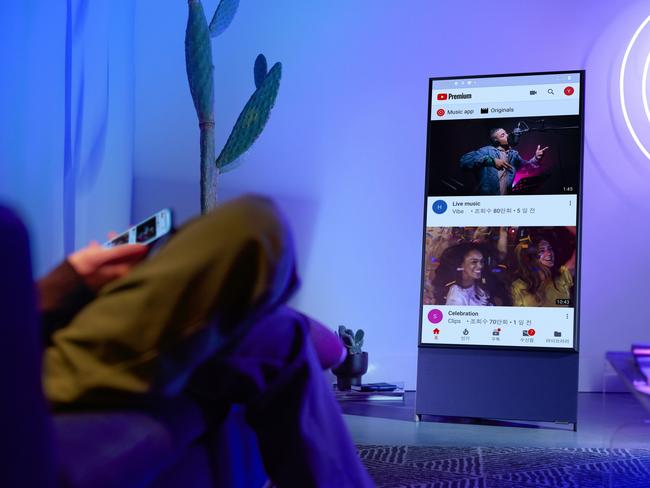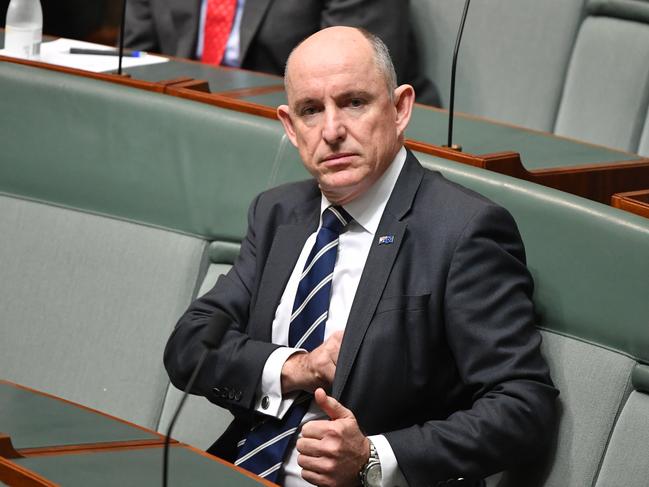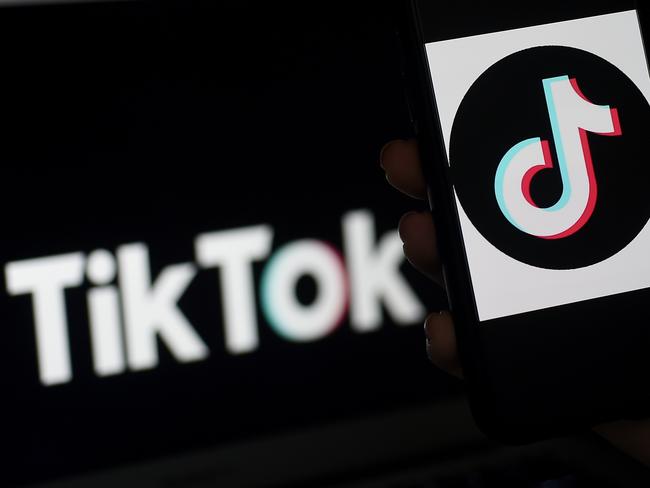Afterpay rival soars 10pc
SplitIt says its merchant sales volumes are up a whopping 260 per cent year-on-year.

Welcome to The Download, The Australian’s technology blog for the latest breaking tech news.
David Swan 5.10pm: Afterpay rival soars 10 per cent
Afterpay rival Splitit has soared 10 per cent, after posting merchant sales volumes for the June quarter up 260 per cent to $US65.4m ($94.2m) on the same time a year earlier, and 176 per cent higher than the previous quarter.
The company reported 1,000 total merchants on Wednesday - up 104 per cent year-on-year, with an average order value of $US893, up 44 per cent on the same period a year earlier.
“This was another terrific quarter, building on the positive momentum we‘ve seen this year as more large merchants are attracted to our business model,” CEO Brad Paterson told The Australian.
“For them it‘s about staying relevant to their customers and improving conversion rates on bigger ticket items, while consumers love it because they can pay for things in instalments without having to take on more debt. As they become more comfortable with the product and we begin leveraging our new partnerships, the runway ahead of us is vast.”
Splitit‘s share price rose by more than 100 per cent in June off the back of a new partnership with Mastercard.
On Wednesday its shares closed up 9.89 per cent to $1.50.
Mr Paterson said that new partnership, adding to an existing partnership with Visa, further differentiated his company from rivals such as Afterpay and Zip.
“We’re different to everyone in the market; we enable instalments on a consumer’s credit card, which means we use the credit they have and help them pay over time, unlike others who are issuing new financing to consumers,“ he said.
“We’re excited that we got there with this partnership and now it’s time to execute,” he said.
He added the partnership would not be limited to offering instalment options for customers, with the companies set to join forces in building new products and services.
“It’s important that we partner with the card networks, and this is an important piece to help us accelerate instalment payments throughout the world,” he said.
Chris Griffith 5.00pm: Apple Pay snares two more banks
Heritage Bank and ME Bank have announced they have joined Apple Pay, so you can add their cards to Apple Wallet and pay with them at terminals using an iPhone and Apple Watch.
With their addition, Apple seems to have lured nearly all the banks into its Australian Apple Pay empire. Even Westpac has joined which means all four major Australian banks support Apple Pay.
While paying with an iPhone is convenient, Apple Watch has provided a touch-free method of payment during COVID-19; you twist your wrist so your watch can almost touch the payments’ terminal in a store. That’s it.
Apple has begun to go further with its Apple Wallet/ Apple Pay system. At Woolies, if you have your rewards card loaded as part of Apple Wallet, the card will be automatically selected at a payments’ terminal when you double click the device to pay and your Woolworths points will be added.
Apple says the automatic selection of your Woolworths rewards card is triggered by NFC (near field communication).
Chris Griffith 4.30pm: Weather Bureau releases a new app
The Australian Bureau of Meteorology has launched the finished version of a new weather app that gives users hourly forecasts over the next three days, instead of three-hourly forecasts for one day.
Users can pan and zoom radars with individual location markets, access current wind speeds in km/h and knots, and view a four-day UV index.
The app has been optimised for small screens and tablets, and you get severe weather alerts based on your location. There’s improved access for people with vision impairment.
Environment minister Sussan Ley says 3.3 million devices in Australia have the bureau’s app installed.
Chris Griffith 4.00pm: Samsung to unveil next Note handset
Samsung says it will hold a virtual “Galaxy Unpacked” event on August 5 to unveil its latest smartphone. It doesn’t say exactly which phone that will be, but the speculation is up to three phones could be launched - the Galaxy Note 20 and its Ultra model, Galaxy Z Fold 2 and a 5G capable Galaxy Z flip.
There are leaked photos online of all three which suggests either that Samsung has a major marketing security problem, or orchestrated unofficial leaks about each device are taking place as frequently as underground earthquakes.
Whatever the case, Samsung will have a veritable fleet of 5G phones being sold before Apple’s very first comes to market with a virtual iPhone 12 unveiling sometime in September or one or two months later due to COVID-19.

Samsung meanwhile has announced the Australian availability of its Sero TV, a set that rotates between landscape and portrait orientations. If you’re looking at phone screenshots or viewing your Instagram feed, the TV can flip to portrait mode to better match the dimensions, and go back to landscape mode for regular watching. It will cost $2,299.
With Dow Jones
David Swan 2.30pm: TikTok a ‘risky’ platform
The Australian government is mulling a ban of China-owned social media app TikTok, but brands should be already reconsidering their use of the app, according to marketing specialist.
Tobey Bower, Commercial Director at independent digital marketing agency Alpha Digital, said TikTok has grown massively despite users being fairly aware of how their data may be being shared at a state level.
“But for brands, it’s critical that before expanding into a new digital communication channel, an appropriate risk evaluation is done; to ensure that the platform aligns with your own brand,” he said.
“The earliest movers are often exposing themselves to a disproportionate amount of brand risk, but also opening up the rewards that come with an audience the size of two billion users,” Mr Bower said.
“We‘ve learned from the recent boycott of Facebook advertising that many brands take the view that advertising on a platform represents at least tacit endorsement of that platform.”
David Swan 1.35pm: Government tech shake-up a ‘shot in the arm’
Minister Stuart Robert‘s announcement yesterday that the government would start prioritising Australian firms for technology procurement is a welcome shot in the arm to the local industry, according to TechnologyOne chief executive Edward Chung.
Speaking to The Australian, Mr Chung said now more than ever, our national agenda needs to support homegrown Australian enterprises as a way to build sovereign capabilities in technology and innovation.
Mr Robert said in a Press Club speech on Tuesday that the government would revamp how it procures its technology.

“We currently have to seek hardware, software, integrators, consultants, providers, and advisers in very separate approaches to market in order to get the end-to-end capabilities we need for a platform,” he said.
Mr Chung said that while global providers come and go, it’s our local tech industry that is here to stay.
This announcement will open the door for our local industry to become the primary providers of choice for government and remove the stranglehold global companies have traditionally enjoyed, he said.
“Whether it‘s Australians buying Australian or Americans buying American, it seems to be the way of the world now and it was really pleasing to see the minister come out and make that announcement,” he said. ”Our local tech industry is really starting to pick up momentum and get the recognition that I think it’s probably deserved for many years now.”
TechnologyOne is one of Australia‘s largest technology companies and its boss said the likes of Oracle and WorkDay have big global marketing budgets making it sometimes difficult to compete in the past for local competitors.
“Looking at TechOne, looking at Atlassian, there are home grown companies here with the IP, the innovation and the R & D to compete on a global scale and win,” he said. ”This all helps, and it helps us all recognise the scale of innovation that R & D that has happened here in Australia over many years now.”
10.45am: TikTok ‘violated children’s privacy’
The US Federal Trade Commission and the US Justice Department are looking into allegations that popular app TikTok failed to live up to a 2019 agreement aimed at protecting children’s privacy, according to two people interviewed by the agencies.
The development is the latest bump in the road for the short video company, which is popular with teens. TikTok has seen scrutiny, including from the national security-focused Committee on Foreign Investment in the United States, rise sharply because of its Chinese parent corporation.

US Secretary of State Mike Pompeo said on Monday that the United States is “certainly looking at” banning TikTok, suggesting it shared information with the Chinese government, a charge it denied.
A staffer in a Massachusetts tech policy group and another source said they took part in separate conference calls with FTC and Justice Department officials to discuss accusations that TikTok had failed to live up to an agreement announced in February 2019.
The Center for Digital Democracy, Campaign for a Commercial-Free Childhood and others in May asked the FTC look into their allegations TikTok failed to delete videos and personal information about users age 13 and younger as it had agreed to do, among other violations.
A TikTok spokesman said they take “safety seriously for all our users,” adding that in the United States they “accommodate users under 13 in a limited app experience that introduces additional safety and privacy protections designed specifically for a younger audience.”
Officials from both the FTC, which reached the original consent agreement with TikTok, and Justice Department, which often files court documents for the FTC, met via video with representatives of the groups to discuss the matter, said David Monahan, a campaign manager with the Campaign for a Commercial-Free Childhood.
“I got the sense from our conversation that they are looking into the assertions that we raised in our complaint,” Monahan said.
A second person, speaking privately, confirmed that advocates had met with officials from the two agencies to discuss concerns TikTok violated the consent decree.
The FTC declined to comment. The Justice Department had no immediate comment.
Reuters
9.45am: ‘No commitment’ from Facebook on hate speech
Organisers of a growing Facebook advertising boycott said they saw “no commitment to action” after meeting with Chief Executive Mark Zuckerberg on Tuesday.
More than 900 advertisers have signed on to the “Stop Hate for Profit” campaign, organised by civil rights groups to pressure the world’s largest social media network to take concrete steps to block hate speech and misinformation, in the wake of the death of George Floyd in police custody.
The Anti-Defamation League (ADL), Free Press, Color of Change and the NAACP met for over an hour via video conference with Facebook executives including Zuckerberg and Chief Operating Officer Sheryl Sandberg to discuss the groups’ demands.
“They (Facebook) showed up to the meeting expecting an A for attendance,” said Rashad Robinson, president of Color of Change, during a press call following the meeting.
In a statement, Facebook responded that “we know we will be judged by our actions not by our words and are grateful to these groups and many others for their continued engagement.”
The campaign, which calls for advertisers to pause their Facebook ads for July, has outlined 10 changes it wants, including allowing victims of severe harassment to speak with a Facebook employee and giving refunds to brands whose ads show up next to offensive content that is later removed.
Reuters



To join the conversation, please log in. Don't have an account? Register
Join the conversation, you are commenting as Logout